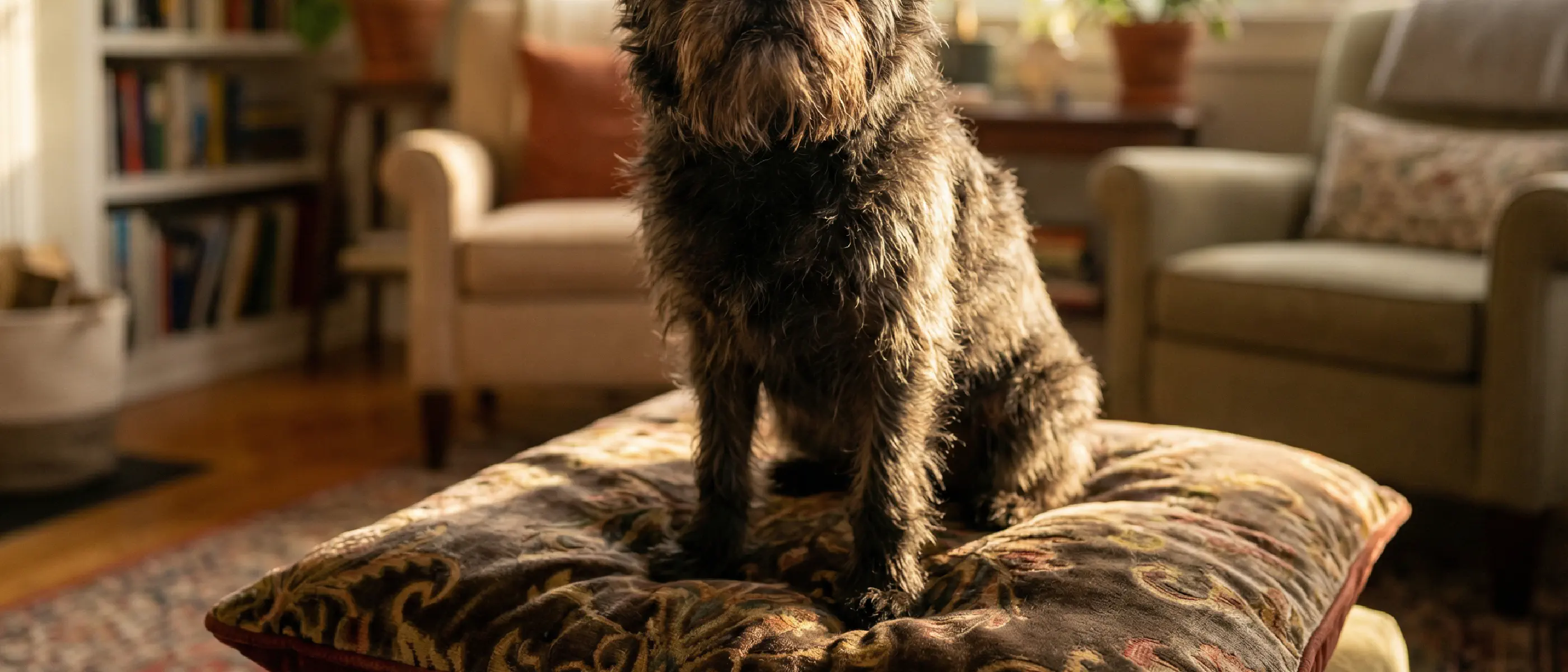The Affenpinscher
Posted on April 11, 2025 • 5 min read • 920 words
Introduction
The Affenpinscher, affectionately known as the “Monkey Dog” due to its mischievous expression and energetic personality, is a small breed that has captured the hearts of many dog enthusiasts. This blog post will explore the fascinating history, delightful personality, care requirements, health and well-being, and the cost of owning an Affenpinscher.
History
Originating from Germany, the Affenpinscher breed dates back to the 17th century. The breed was initially developed to serve as a ratter, helping to control rodent populations in households and stables. Over time, the Affenpinscher became a popular companion dog due to its endearing appearance and charming personality. The American Kennel Club (AKC) officially recognised the breed in 1936, and it has since become a beloved pet for many families worldwide.
Personality
Affenpinschers are known for their playful and inquisitive nature, making them excellent companions for those who appreciate a little mischief. These small dogs are fearless, curious, and highly adaptable, making them suitable for various living situations, from urban apartments to spacious country homes. They bond closely with their families and thrive on human interaction, so they may not be the best fit for those with long working hours. Affenpinschers are also intelligent and stubborn, so early socialization and consistent training are essential.
Care Requirements
Despite their small size, Affenpinschers require regular exercise to maintain good physical and mental health. Daily walks and interactive play sessions are ideal for keeping them fit and stimulated. The breed’s rough, wiry coat requires weekly brushing and occasional professional grooming to prevent matting and maintain a healthy appearance. Affenpinschers are prone to dental issues, so include regular tooth brushing and chews as part of their care routine.
Health & Wellbeing
Affenpinschers are generally a healthy breed with an average lifespan of 12-15 years. However, they are susceptible to certain health issues, including hip dysplasia, luxating patella, heart problems, and eye conditions like cataracts and progressive retinal atrophy (PRA). Regular check-ups with a veterinarian and routine screening tests can help detect and manage these conditions early on. Maintaining a balanced diet and monitoring their weight is essential to prevent obesity-related health issues.
Cost
The initial cost of an Affenpinscher puppy from a reputable breeder can range from $1,500 to $3,000, depending on factors such as pedigree and location. Remember that the ownership cost also includes ongoing expenses like food, grooming, regular vet visits, vaccinations, and parasite prevention. Additionally, you may need to budget for unexpected expenses such as emergency veterinary care or long-term medications.
Summary
The Affenpinscher is a captivating breed with a rich history and an irresistible personality. These little “Monkey Dogs” make excellent companions for those who can dedicate time and attention to their care and are prepared to handle their mischievous antics. An Affenpinscher can bring endless joy and affection to your life with proper care, love, and attention.
FAQ
Do Affenpinschers shed?
Affenpinschers have a low-shedding coat, which makes them suitable for people with mild allergies. However, they are not entirely hypoallergenic, and some shedding will still occur. Regular grooming and brushing can help minimize shedding and maintain a healthy coat.
Do Affenpinschers bark a lot?
Affenpinschers are known to be alert and vocal, so they may bark when they notice something unusual or if they want your attention. Proper training and socialization can help manage excessive barking. Providing mental stimulation and engaging them in play can also reduce their urge to bark out of boredom.
Do Affenpinschers have breathing problems?
Affenpinschers are not brachycephalic (short-nosed) like some other small breeds, so they are less prone to breathing issues associated with a flattened face. However, like all dogs, they can develop respiratory issues due to various causes such as allergies, infections, or heart problems. Regular vet check-ups can help detect and address any potential health concerns.
Are Affenpinschers good with children?
Affenpinschers can be good with children, especially if they are raised together. However, due to their small size, they may be easily injured by rough play or unintentional mishandling. It’s essential to teach children how to interact safely and gently with the dog and always supervise their interactions.
How do I train my Affenpinscher?
Affenpinschers are intelligent but stubborn, so it’s important to start training early using positive reinforcement techniques. Consistency, patience, and rewards such as praise, treats, or toys can help make training more enjoyable and effective for you and your dog. Obedience classes or working with a professional trainer can also be beneficial.
Are Affenpinscher’s good apartment dogs?
Affenpinschers can adapt well to apartment living due to their small size and moderate exercise needs. However, they may bark at unfamiliar noises, so it’s essential to train them to be quiet on command and provide mental stimulation to keep them engaged and content.
Can Affenpinschers be left alone for long periods?
Affenpinschers form strong bonds with their families and may experience separation anxiety if left alone for extended periods. It’s essential to gradually acclimate them to being alone and provide interactive toys or puzzle feeders to keep them entertained. If you work long hours or have a busy schedule, consider hiring a dog walker or enrolling your dog in doggy daycare to ensure they receive the social interaction and exercise they need.
What is the best diet for an Affenpinscher?
A balanced diet with high-quality, age-appropriate dog food is essential for maintaining your Affenpinscher’s overall health. Monitor portion sizes to prevent obesity, and consult your veterinarian if you have concerns about your dog’s diet or nutritional needs.